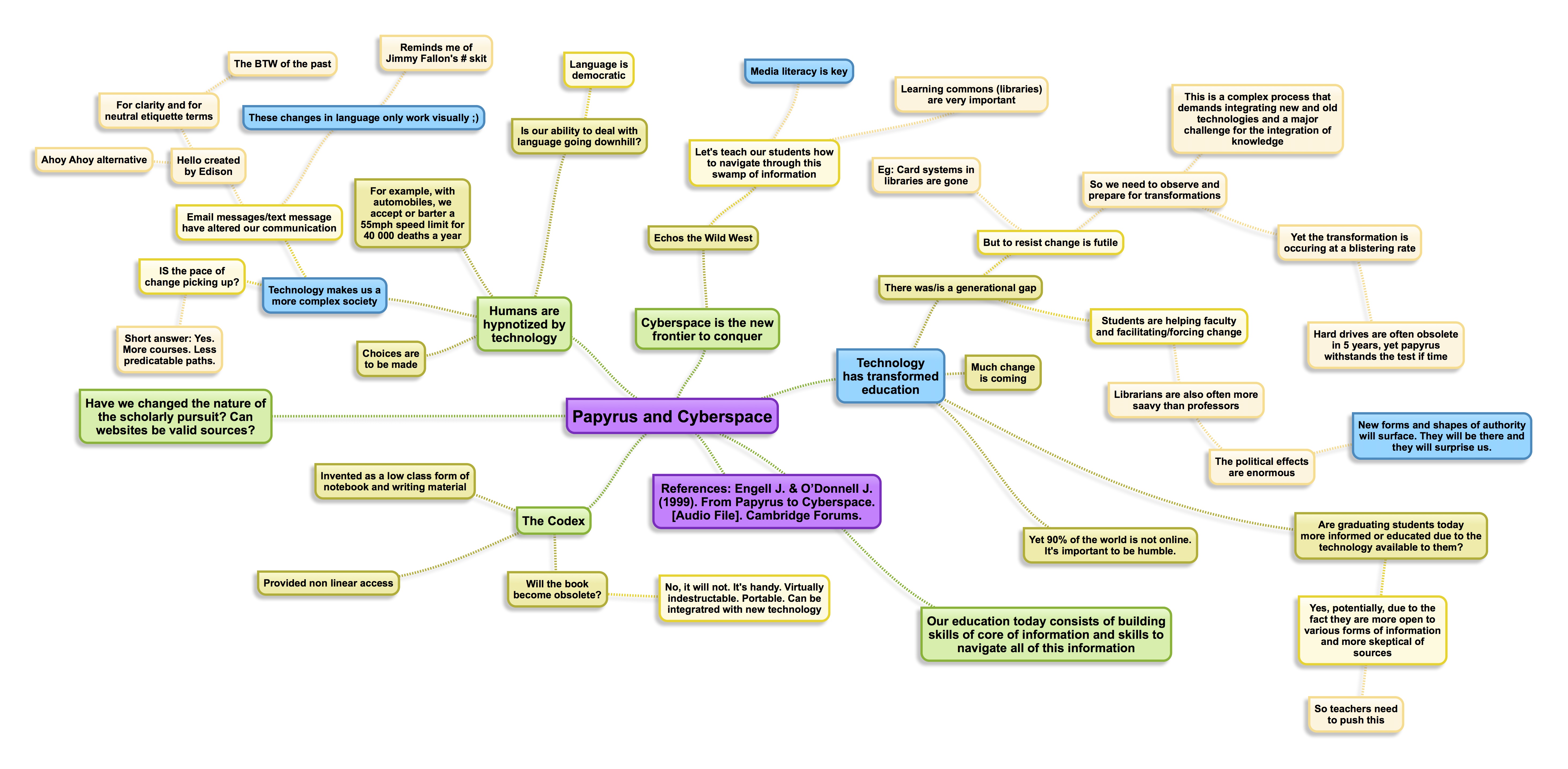Post 3
rip.mix.feed :::: distant reading
When reading the rip.mix.feed section I was intrigued by to scope of this topic. What should I create… As stated in our online syllabus, the tools and practices of online interaction are in a constant state of flux, with new forms of publication and communication emerging and prompting novel behaviour in regards to knowledge creation, diffusion and reception.
For my rip.mix.feed contribution I decided to use my mind map from the SimpleMind Free program. I enjoyed this program because I felt it could help any trend toward mass amateurisation, in which ordinary people can perform tasks once reserved for professionals. By simply mapping out my thoughts as I progressed choices were made and documented and made available for scrutiny. In turn, I was motivated to explore more of the Distant Reading topic that Ernesto suggested.
It seems that the idea of Distant Reading took off (for better or for worse) from a professor named Franco Moretti. Francro presently teaches literature at Stanford University and taught previously at Columbia University.
Simply put, I found that Franco Moretti provided an argument that literature scholars should stop reading books and start counting, graphing, and mapping them instead. This was coincidently how I decided to map my journey through one of the original readings/audio podcast of From Papyrus to Cyberspace.
By changing the approach we have towards literature reviews, Moretti insists that such a move could bring new luster to a tired field, one that in some respects is among “the most backwards disciplines in the academy” (Schultz, 2011).
We need distant reading, Moretti argues, because its opposite, close reading, can’t uncover the true scope and nature of literature. Let’s say you pick up a copy of “Jude the Obscure,” become obsessed with Victorian fiction and somehow manage to make your way through all 200-odd books generally considered part of that canon. Moretti would say: So what? As many as 60,000 other novels were published in 19th-century England — to mention nothing of other times and places. You might know your George Eliot from your George Meredith, but you won’t have learned anything meaningful about literature, because your sample size is absurdly small. Since no feasible amount of reading can fix that, what’s called for is a change not in scale but in strategy. To understand literature, Moretti argues, we must stop reading books (Rothman, 2014).
It seems that not everyone is a fan of Distant Reading. It appears this topic is being introduced into the academic work is seems to be gaining popularity and acceptance. Several critics claim his work confirms Moretti’s penchant for playing devil’s advocate, a role that has brought him as close to notorious stardom as his discipline allows (Shultz, 2011). Regardless of opinion, it seems apparent that Moretti’s work is worth further examination and will likely guide my final multimedia project.
What do you think? Is Moretti’s method anything worth investigating or just an oversimplified, overhyped theory? Thanks for reading.
:::: Matt
References:
Rothman, J. (2014). An attempt to discover the laws of literature. Retrieved from http://www.newyorker.com/books/page-turner/an-attempt-to-discover-the-laws-of-literature
Schultz, K. (2011). What Is distant reading? Retrieved from http://www.nytimes.com/2011/06/26/books/review/the-mechanic-muse-what-is-distant-reading.html?_r=0
Further Reading:
Interesting comparison of “Distant Reading” Versus “Close Reading”
http://www.historyofinformation.com/expanded.php?id=3342
This review of Franco Moretti’s Distant Reading summarizes Moretti’s major arguments within the larger context of recent debates in the digital humanities
http://www.digitalhumanities.org/dhq/vol/8/1/000171/000171.html
Interesting informal dialogue from people who have read Moretti’s works.
http://www.goodreads.com/book/show/16284957-distant-reading
Canadian review of Franco Moretti’s Distant Reading
http://www.torontoreviewofbooks.com/2014/07/franco-morettis-distant-reading/


I like the idea…good job 🙂
Hi Matt,
I really like the idea of using digital technology for mind mapping. I had a class of grade 7s who had been introduced to mind mapping in elementary school. They loved it! This tool would have been a great help to organize their work instead of multiple sheets of paper. Distant Reading is an interesting idea. I would agree that it tends to be the same works that have been examined over and over again. Examining the literature in a different way would produce new ideas.
Catherine
Thanks Mehdia and Catherine! It’s cool to see how this form has the potential of influencing models of online learning.
:: Matt